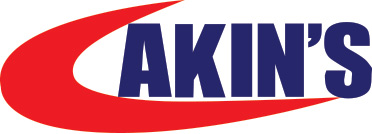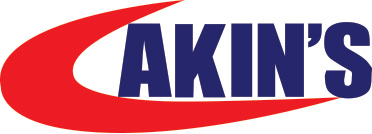
Gigsonline
Add a review FollowOverview
-
Founded Date September 22, 1957
-
Sectors Information Technology
-
Posted Jobs 0
-
Viewed 43
Company Description
Overview: Requesting a Permit without A Company Sponsor

For most of foreign nationals, there are 2 primary categories of alternatives when looking for a permit: family-based and employment-based. For people who do not have an instant family member who is a U.S. person or Legal Permanent Resident, family-based options are either impossible or included a lots of years-long wait.

Employment-based options can be more broken down into 2 classifications: employer-sponsored and non-employer-sponsored (also described as self-petitions). Employer-sponsored options are the more common of the 2; they include the Labor Certification process, which applies for all tasks, and Outstanding Researcher/Professor (EB-1B), which is only applicable for period track or irreversible professors or research positions. The only 2 employment-based immigrant visa classifications where a foreign nationwide might self-petition are National Interest Waiver (EB-2) and Extraordinary Ability (EB-1).
Many employers have limitations regarding who and when they will sponsor for permanent house. They might just offer sponsorship for specific positions, or staff members who will remain in a position for more than a defined length of time. Alternatively, an employer might have a “waiting period” in which employees are not eligible for sponsorship until they have been with the company or organization for a specific length of time on a short-term visa.
Positions that are temporary by nature (such as postdocs, medical residents/fellows, or checking out professors) or part-time will not be suitable for employer-sponsored categories.
If you are examining irreversible house classifications that do not require employer sponsorship (i.e. ‘self-petitions’), note that your chances and credentials for these categories will enhance as your career moves forward. Your CV will get more powerful, and as you advance to greater level positions and company may sponsor employment (and perhaps pay for) your long-term home procedure. Therefore, it is not just crucial to consider whether you receive a self-petition, but whether it is worth trying now.
If you do begin now, as soon as you have an I-485 irreversible house application pending, you will have the ability to acquire work permission, which can make it much easier to look for brand-new work. Additionally, you will be on a path to US citizenship earlier, your partner can obtain work authorization, and you may be able to take a trip without getting a brand-new visa stamp in your passport. In addition, when you are a legal long-term resident (LPR), your kids will be eligible for financial assistance in college, and you might be qualified to obtain more sort of US government grants for your work.
Extraordinary Ability (EB-1A)
Extraordinary Ability is the highest-level migration classification, booked for people who can demonstrate that they are among the leading couple of percent of experts in their fields, in their home country or globally. There are no limitations to the fields that may be included in this classification. EB1-1 is utilized for professional athletes and coaches, organization and consulting specialists, artists and entertainers, and scientists in all scholastic disciplines.
The EB1-1 category needs no employer sponsorship (though such a petition might be sponsored by an employer) and does not need a Labor Certification to show that there are no minimally certified U.S. employees for the task. This classification does need referral letters from peers in the field (consisting of independent recommendation letters) in addition to documentary evidence showing that the candidate is among the leading few percent in the field, which they have actually accomplished sustained nationwide or international acclaim.
If an individual has actually gotten a Nobel Prize or comparable really high-level award for achievement in the field, no additional evidence is necessary. However, most individuals need to submit more comprehensive evidence showing that she or he fulfills at least three (3) out of the ten (10) possible criteria described in the regulations for this category:
– Receipt of lower nationally or globally acknowledged rewards or awards for quality: These need to be prizes or awards for which a person was chosen from amongst his or her peers. Student awards usually do not qualify, unless they are shown to be nationally or globally recognized awards for excellence.
– Membership in associations that require outstanding achievements of their members as evaluated by a panel of national/international experts: Professional memberships that need only a degree in the field and payment of dues do not hold any weight in this category. Memberships that are highly selective and nationally or worldwide renowned, such as the National Academy of Sciences, are pertinent to this classification.
– Published products about the individual in professional publications or major media
– Participation as a judge of the work of others: Such as the satisfaction of demands to peer-review short articles for employment a journal, or service on a grant panel.
– Original contributions of significant significance to the field
– Authorship of scholarly articles in the field.
– Display of work at exhibitions/showcases
– Serving in a leading/critical role for a prominent company
– Commanding a high wage (relative to others in the field).
– Commercial success (applicable just to the performing arts).
In addition to meeting 3 (3) of the criteria above, individuals should be able to reveal the totality of evidence submitted shows that they are at the top of their field. This can be displayed in a wide array of ways, such as having a high citation count, being published in leading journals in the field, receiving invitations to present work at significant conferences, having prior research experience at leading organizations, being called on a grant for STEM research study, and generally any concrete evidence that others in the field are making use of the person’s work.
Please bear in mind that each case is various – many skilled young candidates are not rather all set to file in this category, but might have other options. We likewise routinely experience knowledgeable and accomplished individuals who do not realize that they may get approved for this classification. If you are seriously considering this classification, please to our EB-1A FAQ. We likewise encourage you to update your CV or resume, including the information of 4 referrals (including a minimum of 2 referrals who have actually not worked or worked together with you), and send it to us utilizing the contact page. We will be able to assist you consider your eligibility.
National Interest Waiver (NIW or EB-2)
The National Interest Waiver is similar to the EB1-1 in that it does not require company sponsorship or a Labor Certification. A number of the same letters and evidence as explained above may be used to reveal that a candidate fulfills the standard for a NIW. The criteria for this classification may be thought about more limiting, yet less specific:
– The applicant’s proposed endeavor must be of “substantial benefit” and “national significance”.
– The applicant needs to be well positioned to advance the proposed endeavor.
– On balance, it would be beneficial to the U.S. to waive the job offer and labor certification requirements of the EB-2 classification
* A sophisticated degree is normally thought about a requirement for this category, though some individuals may have the ability to demonstrate that they satisfy other, equivalent criteria.
” Substantial merit” can be demonstrated across a wide variety of fields such as business, entrepreneurialism, science, technology, culture, health, and education.
” National value” is a basic meant to exclude people who are doing essential work that has a regional impact, such as instructors or social workers. The candidate’s proposed work needs to have possible prospective influence on the field or market in a broad sense, and surpass developing value for one’s institution, customers or consumers. Entrepreneurial projects can meet this criterion if they have substantial potential to utilize U.S. employees or other substantial favorable economic effects, especially in economically depressed areas.
The 2nd prong is hard to satisfy. To figure out whether the applicant is well-positioned to advance the proposed undertaking, USCIS will think about factors consisting of, however not restricted to: the individual’s education, skills, knowledge and record of success; a design or strategy for future activities; progress toward attaining the proposed undertaking; and the interest of possible clients, users, or employment investors. USCIS focuses primarily on prior results as a sign of the future likelihood of success. For scientists, USCIS considers whether the candidate’s previous work functioned as an “motivation for the progress in the field” and if it produced “considerable favorable discourse in the more comprehensive academic neighborhood”. To satisfy this prong, the applicant can reveal that outdoors researchers are building on their achievements, for instance, or employment that their findings have actually been widely carried out, licensed for usage by market, and so on.
Finally, to demine if the applicant fulfills the third prong, USCIS considers the following aspects:
– whether in light of the nature of candidate’s credentials or the proposed venture, it would be impractical to protect a job offer or get labor certification;
– whether the U.S. would still gain from the foreign national’s contributions even if certified U.S. workers are otherwise available;
– whether the nationwide interest of the foreign national’s contributions is sufficiently immediate to require foregoing the labor certification process.
Recently, USCIS announced specific evidentiary considerations relating to STEM degrees and fields. What this suggests is that the government acknowledges the value of progress in STEM fields and the vital role of individuals with sophisticated STEM degrees in cultivating this development, particularly in focused important and emerging technologies or other STEM locations important to U.S. competitiveness or employment nationwide security. For this reason, STEM scientists are typically a great fit for the National Interest Waiver classification.
EB1-A vs. NIW
It prevails to get long-term house in both the EB1 and EB2 categories. There is no guideline that restricts the variety of various categories in which an applicant may use. Some applicants will fit well into both categories, but lots of will discover that a person of the other is the stronger application. The filing fee is now $700 per petition – we often suggest starting work on a case, and after that choosing later whether to use EB1-1 or NIW after we are familiar with your case better. Each one of these petitions is different, and it generally takes a minimum of a few weeks for us to give a good evaluation of the strengths and weaknesses of using in each classification.
There are a number of indicate think about.
A. USCIS enables premium processing of both EB1-1 and NIW I-140 petitions. Premium processing for all case types requires filing an additional $2,500 fee; in return, USCIS will make an initial choice on an EB1-1 within 15 calendar days, and a preliminary decision on an NIW within 45 calendar days. Processing times in both classifications differ commonly, the most recent processing time reports are found on the USCIS website.
B. The EB1-1 category is very first choice, while the NIW category is second preference (the exact same classification as Labor Certifications needing advanced degrees or comprehensive experience.) The very first choice classification has actually traditionally retrogressed less often, while the 2nd preference classification is more commonly backlogged. Information about the backlogs for visa numbers can be found in the Visa Bulletin, which is released month-to-month by the Department of State.
C. The EB1-1 category requires revealing that the candidate fulfills at least 3 (3) of the ten (10) requirements, while the NIW does not have such a structured requirement. The NIW needs showing that the candidate has had a verifiable impact on the field such that their future success seems likely. For lots of applicants, their qualifications and evidence will more quickly fit one or the other of these requirements.
D. In the EB-1-1 classification, a candidate might show that she or he has actually accomplished the level of “national acclaim” in his or her home country – if you are from a fairly small country, that may be easier. It is not needed that the candidate have national recognition in the U.S., employment or in more than one country. In the NIW category, a candidate needs to reveal that his or her work has advantage to the United States. The NIW does not particularly require a demonstration of national honor, just that the applicant’s work has had an impact and there is a clear prepare for future work.
Alternatives to Employment-Based Permanent Residence
The primary options to categories that are based on employment or employment field of competence are family-based, political asylum, and special programs of Congress.
Family-based immigrant categories are divided into numerous levels. The leading level, instant relatives, consists of partners, parents (of kids who are at least 21 years of age) or children (under age 21) of US residents. There are long backlogs for the lower levels, including spouses and children of Legal Permanent Residents, married children of US people, and brothers/sisters of US residents. Information about the backlogs for visa numbers can be discovered in the Visa Bulletin, which is released monthly by the Department of State.
Political asylum is a classification that is available to people who hesitate to return home due to persecution based upon race, religion, citizenship, social group or political viewpoint. This classification involves an initial application followed by an in-person interview with a USCIS examiner. If asylum is approved, the person is given a permanent status, however must wait one year before using for the green card.
The most common special program of Congress is the Diversity Visa Lottery. This is a program run by the Department of State that makes 50,000 green cards available to individuals from nations that have low rates of migration to the U.S. The lotto generally ranges from October to December, and guidelines are posted online. It is a lottery, so the opportunities of winning are low – however if you are from a country that qualifies (or your spouse is), we do recommend trying. We have customers who win every year.
Don’t Forget About Your Spouse
If an individual receives long-term home, his/her partner and children might acquire their permits on the very same basis. Therefore a married couple must think about all possible choices for both people, and figure out the most direct route to a permit for all. There are lots of categories not talked about in this post that might be choices for your partner, consisting of an unique classification for nurses and physiotherapists, multi-national managers, financiers, Special Handling for college instructors, and PERM Labor Certification.
Conclusion
It is crucial that a person who wants to obtain long-term home in the United States consider all possible alternatives. It is similarly important to prepare ahead, understanding whenever restrictions of short-lived visas and enabling the unavoidable hold-ups of the permit procedure.


